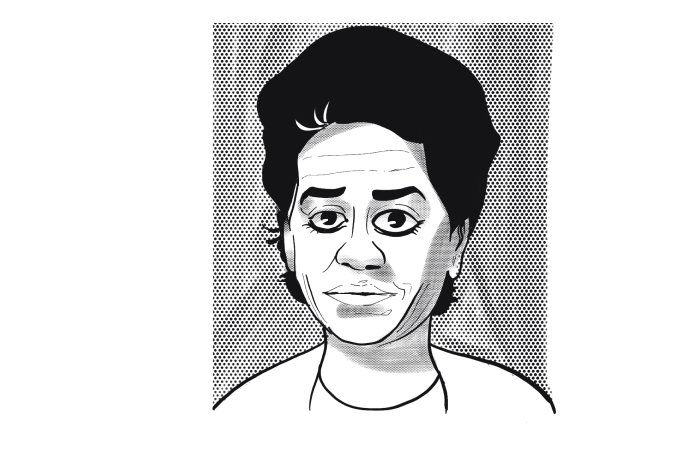Full disclosure: I have voted for Raila Odinga in every election since 2007, except during the October 2017 repeat election, which he asked his supporters to boycott, and which I obediently did. I almost didn’t vote in the 2022 election because I had by then lost faith in him and in our electoral process – until Raila chose Martha Karua as his running mate. Then I voted not so much for Raila but for Martha because I believed she stood for the things I cared about, including social justice, a more equitable society, human rights and democratic values. I thought Karua would be a good antidote to the man-eat-man society we have created, where money, power and “survival of the wickedest” have become national values. I may have been too idealistic, but I did believe that the Raila-Martha duo would form the kind of team that could steer this country towards the right path.
Unfortunately, we will never know if they would have been good elected leaders because they have never been declared the winner in any presidential election. They have also lost much of their clout as formidable opposition leaders. The opposition suffered a severe blow when Raila agreed to “The Handshake” with the then-President Uhuru Kenyatta. The 2018 rapprochement between the president and the leader of the opposition killed any viable form of resistance in Kenya, leaving the sitting Deputy President, William Ruto, competing against his boss in the 2022 election. As the Linda Katiba campaign led by Martha Karua and others stated, “Since the handshake, our democracy has been distorted and the role of the minority party (opposition) completely eroded. The opposition’s more government than the government.”
Why was this dangerous for a fragile democracy like ours?
Well, because in any healthy democracy, the role of the opposition is critical to keep the ruling party in check. Without opposition, we become a de facto one-party state, as we were in the pre-1991 Daniel Arap Moi days. And, as those who came of age in that period will tell you, there is no such thing as a one-party democracy – such systems of governance are known as dictatorships. Now Raila finds himself in a situation where even his die-hard supporters are being lured into the ruling party – because in this country, people do not join or leave political parties for ideological reasons but to consolidate their own wealth and power.
My suggestion to Raila and Martha is that instead of challenging yet another election result, they should strengthen and consolidate the little opposition there is left in the country. And by opposition I don’t necessarily mean political parties or politicians; I mean the kind of opposition made up of civil society activists and ordinary people who challenged the Moi regime in the 1980s and 1990s, and the millions who voted for a progressive new constitution during the Mwai Kibaki era that empowered the Kenyan people and gave birth to new independent institutions.
Currently, both our so-called independent institutions and the Constitution are under threat. A creeping authoritarianism bolstered by ultra-conservative elements both within and outside government could derail Kenyans’ struggle for a democratic and inclusive society, as envisioned by the 2010 Constitution. Self-censorship is already becoming evident in the mainstream media, as it was in the Moi and Uhuru eras. This is a disturbing indicator of where we are heading.
Dr. David Ndii, President William Ruto’s chief economic adviser, and Raila’s former supporter and chief strategist, has assured Kenyans that the president will deliver economic recovery through privatisation of public services and other measures. But there is no one questioning the models being proposed for this recovery because there is no opposition figure who can do this as articulately and intelligently as Ndii himself. Where are the think tanks in Raila’s team who can challenge the models being proposed or offer alternative solutions?
The country is in bad shape. The economy looks like it might be tanking. Rising debt and new taxes and austerity measures are choking citizens financially. Drought is ravaging large sections of the country. These are issues that Raila, Martha and those in civil society (who still care about the constitution and the rights of citizens) should be highlighting.
Raila and Martha do not need to be in government to influence how these issues are tackled at the national level. In many countries, governments change policy when there is enough pressure from below – from ordinary people. It was this pressure that forced Moi to change track in 1991 and re-introduce multipartyism.
Like Martin Luther King Jr. and Mahatma Gandhi – neither of whom were elected or nominated officials who held senior positions in government – Raila and Martha could and should become the moral conscience of the country. This is not an easy task; both King and Gandhi paid for it with their lives. But I do believe there are large sections of the public who yearn for a functioning, credible and robust opposition that can articulate citizens’ concerns (especially those to do with the economy) and speak for the voiceless. These people are currently leaderless. Raila and Martha could fill the void, as they have often done in the past.
We don’t need messiahs. But we do need leaders who will protect our democracy, our economy and our constitution from predators who will have no qualms about demolishing all the gains we have made as a nation because it serves them politically or economically.

